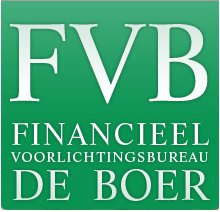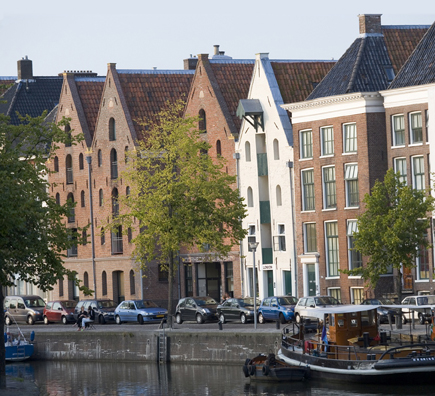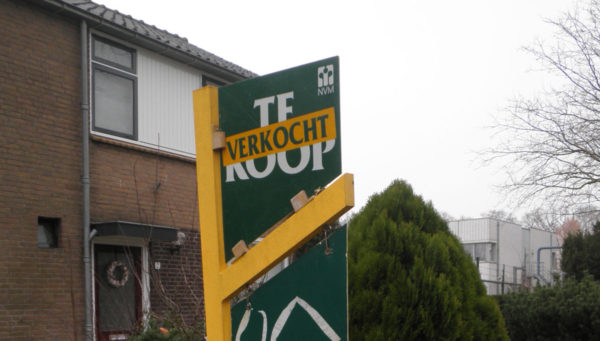Excerpted from https://fvbdeboer.nl/ with permission
If you are planning to be in the country for some time, you may wish to buy a house in the Netherlands, as it can work out more beneficially financially than renting long-term. However, it is a good idea to make sure you are aware of all the pitfalls too before investing in a foreign country. FVB de Boer has written a 10-point guide to make sure that you have thought of everything before taking the plunge.
1. Can you buy?
There are no restrictions on foreign nationals owning property in the Netherlands. However, the Netherlands has a high proportion of social housing and rent-controlled housing, which can make finding a property harder.
2. Choose your location
Spend some time deciding what is important to you when looking for a property. Do you want to be in the city center, or does life in the suburbs appeal more? And if you have children or hope to have them in the not so distant future, you may also want to consider the location of the schools. And find out about transport links and costs.
3. Find out what’s on the market
Get an idea of what you will be able to borrow if you need to take out a mortgage. In the Netherlands, mortgages are available for up to 30 years and up to 100% of the purchase price. But best to get some financial advice first and make sure you know your budget.
4. What’s it worth?
On the housing website Funda.nl you will find most of the properties that are available on the market. Try to make your best estimate of the value of the house, which is primarily determined by the sale price of other houses in the same area. One way to do this is by contacting the national land registry, called Kadaster (kadaster.nl) or by buying an online report with Kadasterdata.nl or Calcasa.nl.
5. Hire a real estate agent
At this stage, you may want to make sure you have an agent (makelaar). The real estate agent mentioned on Funda is representing the seller and it is his/her job to achieve the highest possible selling price for his client. A buying agent can help you find your dream house, but also negotiate on your behalf and advise on the value of the property. After the sale price has been agreed, the formal steps towards property transfer take place. Buyer and seller sign a purchase agreement (koopovereenkomst).
The purchase agreement have a couple of important dates to consider: The date of transfer of ownership, but also the date whereby you have to make a deposit of 10% (or a letter of guarantee from the mortgage bank). And it is often possible to have a financial contingency date in the purchase agreement. This means that you have several weeks to get your mortgage sorted and failing that, you will be able to release yourself from the contract.
6. Get a mortgage
Your mortgage (hypotheek) will be arranged as soon as the purchase agreement is signed. However, it is important to discuss mortgage terms with your financial advisor before even making a bid on a house. Your financial advisor can also assess the feasibility of getting the mortgage beforehand.
7. Find a notary
Your real estate agent or financial advisor will be able to help you find the required notary (notaris) who will deal with all the legal paperwork related to your sale. A notary is an impartial lawyer specialized in real estate transactions. A translator is also required to attend notary meetings in cases where one or more of the parties is able to properly understand the Dutch language and must be booked in advance.
8. Allow for extra costs
Fees that you have to consider:
- Transfer tax (Overdrachtsbelasting): 2% of purchase price (not applicable for houses that are newly built)
- If applicable: National Mortgage Guarantee for social housing: 1% of mortgage amount
- Valuation costs (Taxatiekosten): €350 – €600 (this fee is tax deductible)
- Technical survey (Bouwkundige Keuring): €300 – €350
- Mortgage advice: € 2.750 – € 3.750 (this fee is tax deductible)
- Notarial deeds of transfer and mortgage: € 1.200 – € 1.800 (the notarial deed for the mortgage is tax deductible)
9. Arrange insurance
Make sure you arrange the necessary fire and damage insurance for your property. The Netherlands distinguishes between property insurance (Opstalverzekering) and content insurance (Inboedelverzekering).
10. Sort out taxes
Owning your own property mean you will be liable to pay annual property taxes (OZB Onroerende ZaakBelastingen) to the local municipality. If you are a Dutch tax payer, your mortgage fees and part of the interest payments will be a tax deduction (with current tax laws).
How can FVB de Boer help you?
 Buying a home is an important decision. Buying a home abroad, where rules, laws and taxation are run differently, can present even bigger challenges. FVB de Boer can help you. As an independent mortgage advisor, they compare all the different mortgage providers with each other, so you can be confident that you get the most suitable deal on the market, as well as unambiguous and independent advice and trusted, professional, and reliable service.
Buying a home is an important decision. Buying a home abroad, where rules, laws and taxation are run differently, can present even bigger challenges. FVB de Boer can help you. As an independent mortgage advisor, they compare all the different mortgage providers with each other, so you can be confident that you get the most suitable deal on the market, as well as unambiguous and independent advice and trusted, professional, and reliable service.
The mortgage process
FVB can guide you through the process from the start to the moment you sign the paperwork, and even beyond. Here are some of the stages of the process they will assist you with:
- Set up an initial meeting to establish your wishes, situation, and future plans. They will advise you on what is involved, what the costs are and what you can expect from them. They will then complete the first stages of paperwork, complete a client profile, and advise you on the suitable products that are available.
- Once you have made a mortgage decision, they will deal with the bank, the appraisal on the property, and any insurance requirements you may have. FVB will check the paperwork and make sure you get all the appropriate information. They will also be on hand to answer questions and give advice.
- After you have purchased your property, FVB can advise you on tax breaks, administer any changes to your personal circumstances or those of your property.
 +31 (0)50 367 71 97
+31 (0)50 367 71 97  info@connect-int.org
info@connect-int.org

